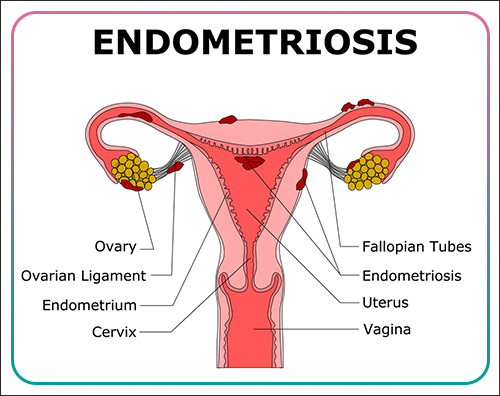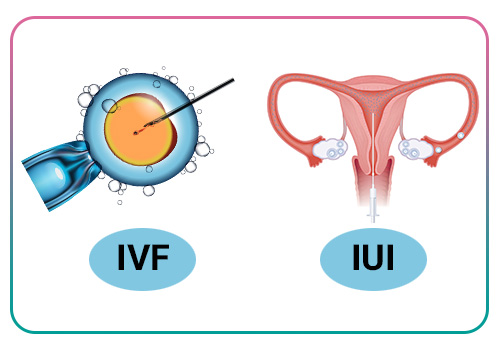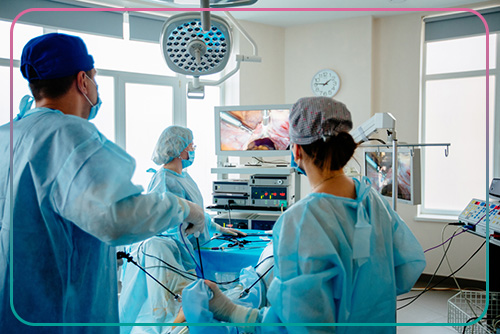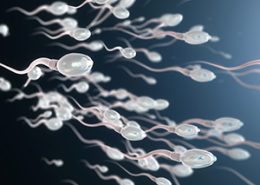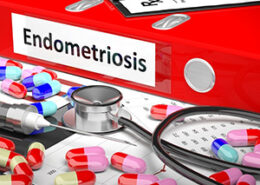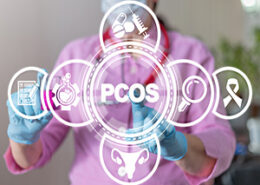Endometriosis and Infertility
In this article, we will learn more about endometriosis, endometriosis, and infertility and its effect on fertility, and talk about infertility treatments that can help treat infertility caused by endometriosis.
What is Endometriosis?
Endometriosis is a disorder in which one in 10 women develops the disease at reproductive health age. Endometriosis means the growth of uterine tissue in a place outside the uterus that can affect the pelvis, ovaries, fallopian tubes, and vagina. Endometriosis can also be seen on the bladder, small intestine, colon, appendix, and on cesarean, laparoscopic, and laparotomy scars, but it is not common in these places.
In endometriosis cases, the endometrial tissue is located outside the uterus. But it has not lost its nature and continues to thicken and bleed during each menstrual period, similar to uterine tissue. Endometriosis can cause sores and adhesion on surrounding tissues and affected the internal organs.
Symptoms of endometriosis
The most common symptom of endometriosis is pelvic pain. These pains often occur during menstruation. But a woman with endometriosis may have pain that is not related to her menstrual cycle. Many women with endometriosis have severe pain that significantly affects their lives.
Other symptoms of endometriosis include:
- Dyspareunia during and after intercourse
- Pain when urinating and defecation (may occur during menstruation.)
- Having heavy bleeding during menstruation(hypermenorrhea)
- Bleeding between periods
- Fatigue, diarrhea or constipation, bloating, and nausea during menstruation
- Infertility (30-40% of women with endometriosis may not be able to have children.)
It should be noted that all of these symptoms may not be seen in a person with endometriosis.
Treatment of endometriosis
The definitive diagnosis of endometriosis is made by direct examination of the lesion and sampling through laparoscopic surgery. However, in some cases, ultrasound diagnosis is also reasonably accurate.
Due to the susceptibility of the disease, diagnosis, and treatment of endometriosis are done only in equipped centers and by teams specializing in the treatment of endometriosis. Endometriosis is usually treated surgically, especially if the disease is advanced and painful. In most cases, this surgery is performed laparoscopically. But in very rare cases, open abdominal surgery may be needed. In some cases, surgery is not needed to treat endometriosis and medication can be used.
Decisions about treatment are made by a doctor who specializes in treating endometriosis. It is important to choose an experienced doctor who specializes in treating endometriosis. Incomplete and large surgeries by non-specialists can have dire consequences for a person of childbearing age.
Endometriosis and fertility
Totally, women with endometriosis are less likely to become pregnant. It seems that in more severe cases of endometriosis, it will be more difficult to get pregnant. Of course, endometriosis does not mean infertility; rather, it means that it will be difficult to get pregnant. Many women with endometriosis have no problem having children, and many others will eventually have children. However, these women may spend a long time getting pregnant.
Endometriosis causes pregnancy problems in women with endometriosis by stimulating the fallopian tubes and ovaries and creating endometrial tissue and adhesion in the female reproductive tract. To solve these problems, some women with endometriosis may need surgery or assisted reproductive therapies such as IVF, IUI, etc., or both.
Treatment of infertility caused by endometriosis with assisted reproductive techniques
Intrauterine insemination (IUI) is one of the infertility treatments that can help women with endometriosis who suffer from infertility. The sperm is artificially injected into the uterus.
The IUI infertility treatment begins with controlled ovarian stimulation and the use of hormonal drugs.
These medicines cause more eggs to be produced during each menstrual cycle. Then, after collecting the male sperm, they are washed with special methods and quality sperm is injected into the uterus. IVF is another treatment that can help pregnant women with endometriosis. In this method of fertility treatment, egg fertilization takes place in the laboratory and outside the uterus.
The IVF treatment (or ICSI) process is similar to the IUI method in which the treatment process begins with ovarian stimulation. The produced oocytes are removed from the ovaries by a specialist. The quality of the eggs obtained in the laboratory is checked and the quality eggs are fertilized by the sperm washed in the laboratory environment. Then, the embryo is transferred to the mother’s uterus after the initial stages of growth. (Learn more about ways to improve your egg quality: How to Improve Egg Quality for Pregnancy or IVF)
IUI or IVF; which is better for treating infertility problems in women with endometriosis?
In women with endometriosis, endometrial tissue can grow in different areas of the reproductive system and block the passage of eggs in the fallopian tubes or the passage of sperm to the uterus. Thus, infertility in women with endometriosis occurs mainly due to a lack of egg fertilization.
In IUI, insemination occurs inside the uterus. Therefore, if an individual with endometriosis has a barrier to sperm reaching the egg, the IUI cannot help fertilize the egg. In IVF, however, fertilization takes place outside the uterus, and the endometrial tissue cannot prevent ovulation. Therefore, IVF is the best way to treat infertility due to endometriosis. Statistics show that in infertility treatment centers, IVF is 5 times more commonly used than IUI for infertility treatment due to endometriosis.
Surgical treatment of Endometriosis
For the treatment of endometriosis, endometrial tissue can be removed by laparoscopy. This surgery must be performed by a skilled surgeon. Otherwise, it can damage other tissues and lead to the recurrence of endometriosis. Learn more about laparoscopy and infertility: Laparoscopic Surgery: Purpose, Procedure, and Benefits
One of the cases in which laparoscopy is used to treat endometriosis is ovarian endometriosis. The most important question about infertility treatment due to ovarian endometriosis is what type of cyst should be treated?
Treatment the ovarian endometriosis does not appear to affect the success of IVF treatment. However, it is recommended that laparoscopic surgery be performed on cysts larger than 4 cm before the start of the IVF process. This increases the ovarian response to ovulation-stimulating drugs and makes it easier for gynecologists to collect ovarian follicles. Also, it reduces the risk of infection after egg collection and infection of the ovarian culture medium. However, removal of the ovarian cyst may remove some of the tissue near the ovary, such as some follicles (possible eggs). In addition, in women whose ovaries have undergone the surgery, the surgery can slow ovarian function. Therefore, the choice of surgery as an adjunct to infertility treatment in women with endometriosis should be made by a specialist doctor after various examinations. Learn more about the causes of female infertility: Infertility in Women
Endometriosis Treatment in Iran
Various hospitals and treatment centers in Iran provide specialized services for the treatment of endometriosis to patients. Using advanced equipment and experienced doctors, these centers try to prevent and treat the many consequences of endometriosis in a timely manner. Treatment of endometriosis in Iran can prevent infertility caused by endometriosis and end pain resistance to drug treatment in some patients. The endometriosis clinic of Avicenna Infertility Treatment Center is one of the most successful endometriosis treatment centers in Iran, which provides endometriosis treatment services to Iranian and non-Iranian patients in accordance with international standards.
You can contact us about endometriosis treatment in Iran, and a free consultation with infertility treatment specialists in Iran.

